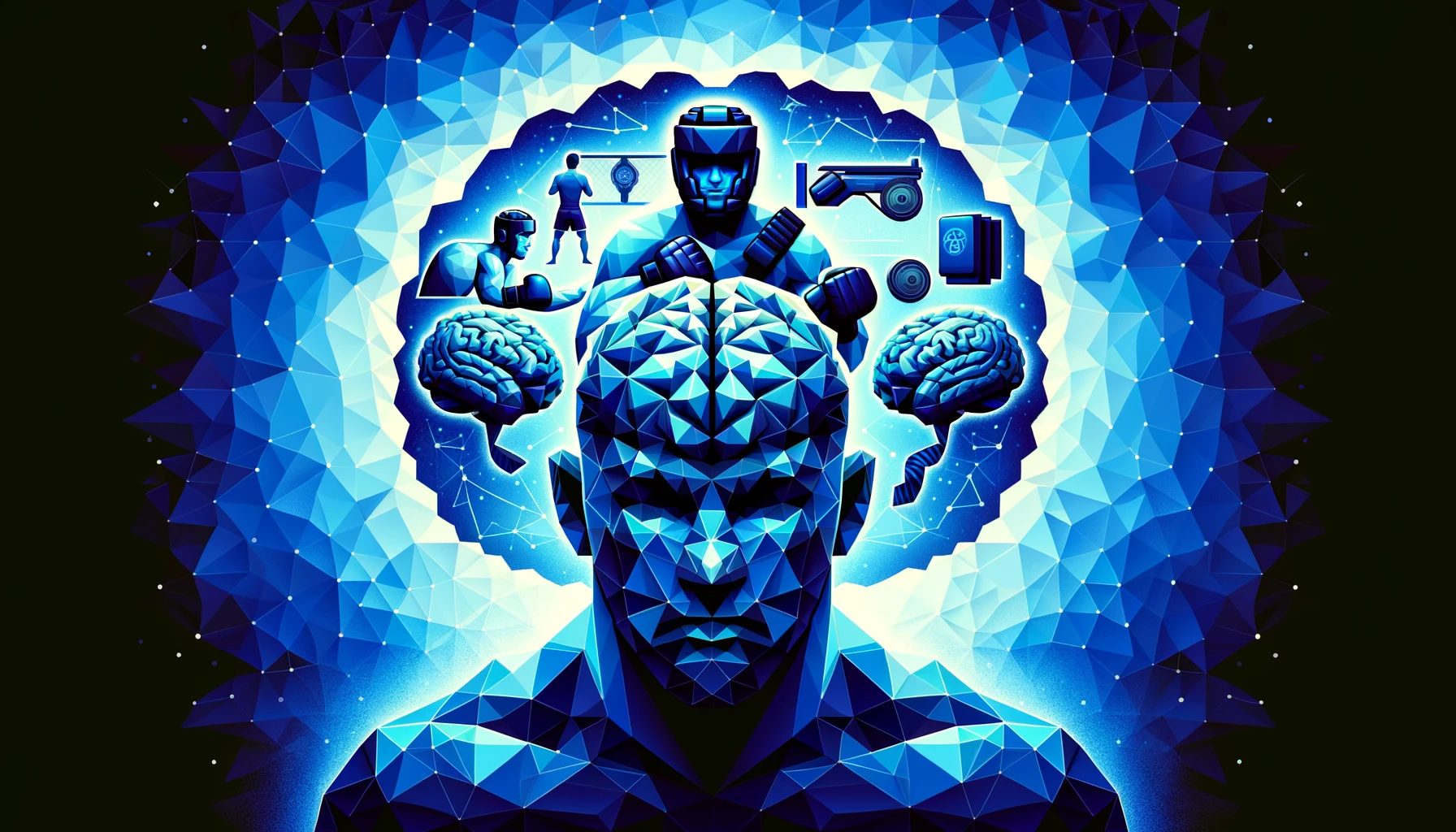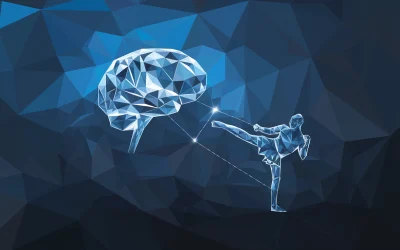Head trauma and concussions are a significant concern in mixed martial arts. Even a single blow to the head can cause concussion symptoms. Over a long career, repeated head injuries can lead to chronic traumatic encephalopathy (CTE), a degenerative brain disease. However, there are steps fighters and trainers can take to minimize head trauma and prolong the career and health of MMA athletes.
Understanding Concussions
A concussion is a traumatic brain injury caused by a direct or indirect blow to the head. The brain bumps up against the inside of the skull, damaging cells and connections between brain regions. This disrupts overall brain function.
Concussions can occur from:
- Strikes to the head, whether standing or on the ground
- Falls where the head hits the canvas
- Whiplash injuries that violently shake the head
- Force transmitted through the jaw or neck into the brain
You do not have to lose consciousness to suffer a concussion. “Seeing stars” or feeling dazed after a head strike likely represents a concussion, even if temporary.
Recognizing Concussion Symptoms
Fighters and coaches must be vigilant about concussion symptoms appearing during or after training and competition. Symptoms include:
Immediate symptoms:
- Confusion, inability to focus or process information
- Amnesia, inability to remember what happened before/after the head strike
- Headache, dizziness, loss of balance
- Nausea and vomiting
- Ringing in ears, sensitivity to light and noise
- Slurred speech, delayed reactions, fatigue
Delayed symptoms:
- Difficulty concentrating, slowed thinking, haziness
- Memory issues, forgetfulness
- Sleep disturbances like insomnia or drowsiness
- Mood changes – irritability, emotional swings, depression
- Sensitivity to light/noise persists
Look for any mental fogginess, personality changes, or physical effects like headaches or dizziness after head injuries. These require medical evaluation. Let your doctor know about any incidents where you took shots to the head.
Dangers of Second Impact Syndrome
Once a concussion occurs, the brain is vulnerable to further injury. Receiving another head blow before fully recovering can trigger severe swelling and dangerously high pressure inside the skull. This “second impact syndrome” has a high mortality rate.
That is why anyone exhibiting concussion symptoms must immediately stop sparring. Trying to be tough and train through a concussion risks deadly consequences. Err on the side of caution and keep partners who have been concussed out of contact practice. Their long-term health is far more critical.
Chronic Traumatic Encephalopathy
Multiple concussions accumulated over an MMA career can lead to a condition known as chronic traumatic encephalopathy (CTE). CTE occurs when repetitive head blows cause a buildup of abnormal tau proteins within the brain, destroying nerve cells.
As brain damage progresses, CTE causes declines in memory, cognition, mood stability, and motor control. Former athletes with CTE often experience depression, emotional volatility, loss of impulse control, and dementia later in life.
Since CTE can only be definitively diagnosed through autopsy, the full scope of the problem in contact sports is still being uncovered. However, there is concern that accumulating sub-concussive and concussive impacts over an MMA fighter’s career may put them at significant risk.
Steps to Reduce Head Trauma
While some degree of trauma is intrinsic to MMA, fighters and coaches can take steps to minimize unnecessary headshots:
Wear protective gear: Use boxing gloves, headgear, shin guards, elbow pads, and mouthguards during sparring. Save fingerless MMA gloves for technique work.
Limit full-contact sparring: Going hard multiple times a week leads to overexposure. Focus on technique.
Avoid bigger partners: Being outweighed leaves you open to heavier shots.
Learn takedown defence: Repetitive slamming also causes minor head trauma.
Neck strengthening: Muscles help stabilize the head and absorb impact. But use controlled exercises, not weights.
Watch for concussions: Anyone significantly dazed or confused after head strikes should stop sparring and see a doctor.
Take time off after knockouts: Skipping concussion recovery risks severe complications or death.
Track exposures: Coaches should document all hard sparring sessions, including head strikes.
Check your ego: Making sparring a battle of wills serves no one. Prioritize safety.
Sitting Out After Head Injuries
Trying to spar or compete after a potential concussion puts a fighter at risk. Many fighters are not eager to take time off, but coaches must intervene when necessary. Short-term rest protects long-term health.
Continuing to train immediately after head trauma can compound injuries and delay recovery. It also elevates the risk of catastrophic second impact syndrome. No one’s toughness is worth dying over.
If you experience a head injury, take time off and avoid stimulation. See a doctor experienced in concussion treatment and follow their return-to-play guidance. A fighter’s brain health must take priority over shortcuts.
Baseline Neurocognitive Testing
Baseline computerized neurocognitive testing records cognitive abilities when healthy. It provides a comparison point to assess deficits after brain injuries.
Baseline testing includes:
- Memory and information processing speed
- Response speed and accuracy
- Ability to switch between tasks
- Attention and concentration
After a concussion, repeating portions of the test can identify lingering effects like slowed reaction times. This helps guide recovery and decisions on returning to contact sports.
Long-Term Effects of Head Trauma
MMA has rapidly evolved to prioritize fighter safety. But the long-term consequences of head trauma historically went under-recognized. As athletes age, they face increased risks of depression, memory loss, and neurodegenerative disorders.
While concussions cause temporary dysfunction, lasting brain changes can accumulate after years of repetitive sub-concussive and concussive impacts. Each fighter must determine their acceptable risk level.
Protecting your brain health requires thinking beyond the next fight. By being proactive and avoiding unnecessary hits in the gym, fighters give themselves the best chance of enjoying their lives after the competition. At Apex MMA, protecting your health during training and sparring is of the utmost priority, and we aim to educate all our members and coaches on these critical safety factors to help minimise and eliminate these risks.





0 Comments